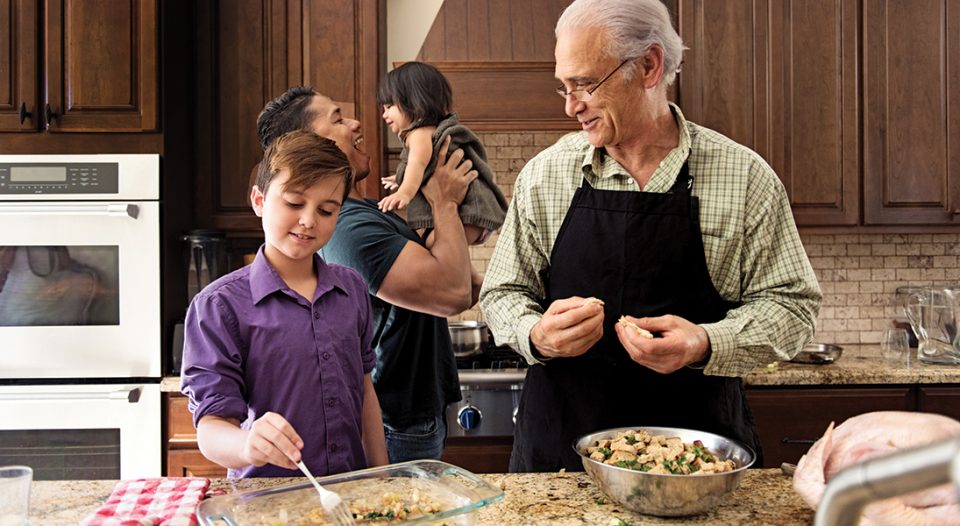Last year our family moved from Chicago to a new home, one close enough to extended family that holidays no longer mean hours on the road and living out of a suitcase. Unpacking was a lengthy process, but we had our eyes set on one goal: hosting Thanksgiving for the first time.
Some of the dishes we prepared that Thanksgiving were family staples, like my grandmother’s cranberry sauce. Others, like the navy bean pie, were relics of Chicago. The meal was a fusion of old memories we shared with our families and those we made with our children in Chicago.
Our feast was a testament to anthropologist Pat Caplan’s truism: “Food is never ‘just food,’ and its significance can never be purely nutritional.” By preparing and sharing food, we share parts of our stories with others. Filling a meal with symbols of ourselves is a privilege—one that is out of reach for many of our neighbors.
In the United States, 5.8 million households are facing food insecurity. Without adequate access to food, our neighbors not only lack nutrition but a key outlet for sharing their stories.
My spouse and I are trying to show our children it’s a blessing and privilege to make meaningful choices about our food. Through ELCA World Hunger, our church supports ministries that go beyond providing calories to people in need. Of course, we want our children to understand this, too, so we don’t start conversations by pointing out there is hunger. We start at a more basic level, asking, “What is food, and what does it mean for us?”
We talk about tables too—school lunch tables, for instance—and who is welcome at them. We’re trying to help them see the outgrowth of Caplan’s observation: food is never “just food,” and the significance of hunger is never “purely nutritional.”
Our hope is that as they grow, our children can appreciate that when God calls us to feed the hungry, the call is not just to service but to renewed and restored relationships with our neighbors. It’s a call not just to feed but to create tables where our stories, histories and communities will be reconciled together and at which all will be welcome—and all shall be filled.
Practices
- Feast: This Thanksgiving, share with your children the stories behind the meal you will eat, and how the food represents your shared story. What dishes bring back memories of people no longer at your table?
- Act: As a family, learn about area ministries serving your neighbors in need. Consider volunteering or ask staff at a ministry about their clients’ needs and collect gifts to donate.
- Look ahead: World Hunger’s 2018 Advent Study includes weekly reflections to read at home, with Bible verses to center your conversations.




